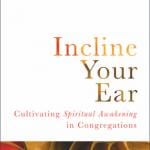 An important part of any spiritual journey is remembering consolation, appreciating the joy and experiencing the gratitude we have for our relationship with the Divine. It’s also helpful to reflect on our “valley” experiences of disconnectedness from God, known as desolation. Both principles offer opportunities for spiritual growth.
An important part of any spiritual journey is remembering consolation, appreciating the joy and experiencing the gratitude we have for our relationship with the Divine. It’s also helpful to reflect on our “valley” experiences of disconnectedness from God, known as desolation. Both principles offer opportunities for spiritual growth.
The terms consolation and desolation to describe our spiritual condition come from the writings of Ignatius of Loyola—cofounder of the Society of Jesus (Jesuits), an order of the Roman Catholic Church, around the time of the Protestant Reformation in the mid-sixteenth century.
Movements of the Heart
During a time of convalescence, Ignatius noticed what he termed “movements of the heart.” He found that when he read about Jesus or the saints, especially Francis of Assisi, he felt a deep and lasting desire to be like them. These insights led him to write about two important movements of the heart: consolation, a pull or movement toward God, and desolation, a push away from God. And he decided he wanted to follow the way of consolation.
Consolation
Lots of people speak of consolation as the feeling of being comforted and supported. Ignatius uses the word in a much broader sense, referring to deep emotion that draws us closer to God. It can also refer to a sense of God being with us through events in life. If you have ever felt in sync with the Spirit, filled with joy, hope, love, lasting peace, energy, life or comfort, you have experienced consolation. But consolation is not something we experience only when life seems good. We can find ourselves comforted and held by God even in times of deep grief and sadness. When looking for consolation, it helps to consider moments when something holy, awesome, or mysterious breaks through and touches our heart.
Desolation
Desolation is the other side of the emotional coin. It’s more than feeling “down and out,” which is how we use the term in casual conversation. Ignatius uses “desolation” to refer to any movement of the heart that draws us away from the goodness of God and the life God has given us. For Ignatius, desolation occurs when we turn away from God or get caught up in a whirlwind of negative emotion, such as uncontrolled anger, restlessness, anxiety, chaos, apathy, lethargy, or cold-heartedness. Desolation may not be desirable, but it is helpful. Think of it as more of a warning sign or a “teachable moment” than as a failing or sin. For example, if we take a path in life that seems inspired by God but find ourselves in constant desolation, it’s time to stop and reflect on the wisdom of our choice.
Both consolation and desolation are to be expected in life, and becoming aware of them and learning from them helps us mature in faith. One way to track these movements of our hearts is to journal about each day’s consolation and desolation and then pray for guidance to understand what each movement means for future choices.
This reflection on consolation and desolation comes from a book Rev. Chad Abbot and I have published from Fortress Press, Incline Your Ear: Cultivating Spiritual Awakening in Congregations.














